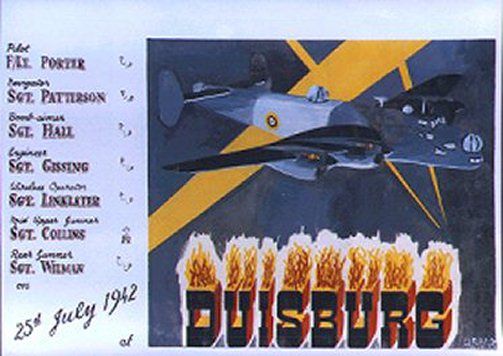 Previous Section |
 Go Back to Chapter Headings |
 Next Section |
At Lamsdorf summers were always tolerable, the soup rations in particular
were much better, as more vegetables were available Red Cross parcels came
through better as did parcels from home. And, of course, we were not cold. Once
we were even allowed to go to a nearby lake/slough for a swim. Restrictions
within the camp relaxed as the Germans were so desperately short of manpower
that there was only enough guards to maintain the outer perimeter of the camp.
The Ukraine Underofficer (Corporal), who had been in charge of our compound, was
sent to the Western Front because it was known that any Eastern Europeans in the
German Army, when captured by the Russians, were generally shot on the spot or
worse still sent to a Galag in Siberia to die of hardship and deprivation. We
knew the Russians were getting ever closer, and with the Allies Second Front in
the West and the Germans lack of manpower and war materials, that the end must
come soon.
One episode I recall was when two paratroops survivors of the
Arnheim parachute drop came to camp the German Commandant sent them some
cigarettes in recognition of the Bravery of this British effort which ended so
disastardly for them.
The two most dangerous periods for POWs was when
first captured and when a war draws to an end. Apparently Hitler was all for
lining us up and shooting us all to get us out of the way. The German Generals
refused to do this.
The desperate German man-power shortage was becoming
more evident as the number of guards grew less and less. With the obvious end to
the war drawing near there was no point in attempting to escape. It was rumored
that if you fell into Russian hands you were liable to be shot on the spot, so
there was no incentive to try and make it to their lines.
In the Fall of
1944 we saw the survivors of the Warsaw uprising being marched to the Russian
camp a few kilometers away. They were all in civilian clothes and too far away
to be seen in detail. Their ordeal was an example of Russian duplicity. When the
Russians reached the Eastern outskirts of Warsaw, the Polish Underground rose up
against the Germans. The Poles were aiding the Russians to conquer Warsaw. The
Russians, however, ceased fighting to enable the Germans to wipe-out most of the
underground. Churchill implored the Russians to let the R.A.F. fly supplies to
the underground, which meant the planes would have to refuel in Russia and
return to Britain. The Russians refused. as they wanted the Polish Underground
destroyed because it's members wanted an independent (not a Russian controlled
Poland) after the war. Such was Communism in practice.
 Previous Section |
 Go Back to Chapter Headings |
 Next Section |